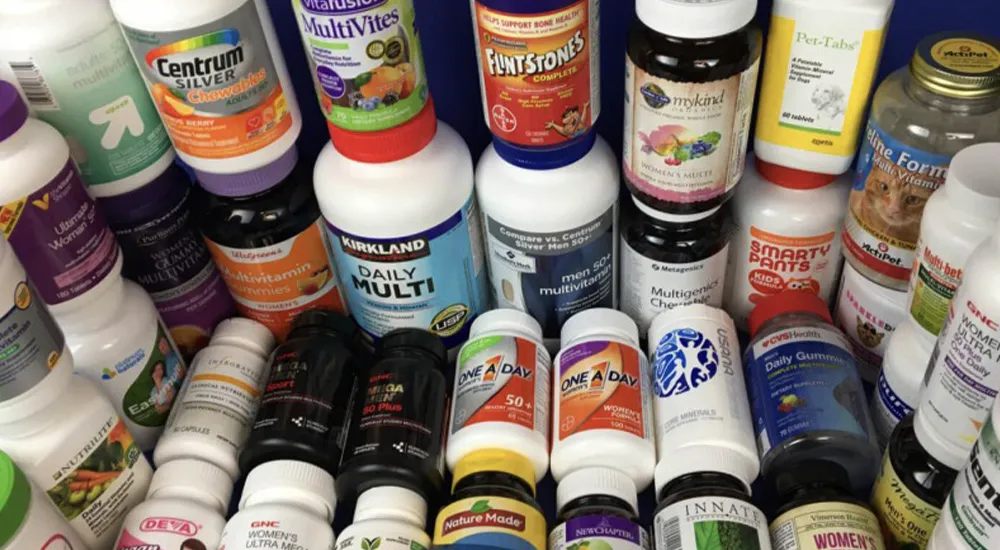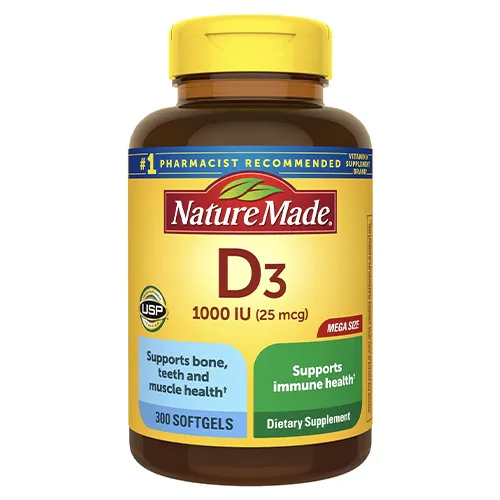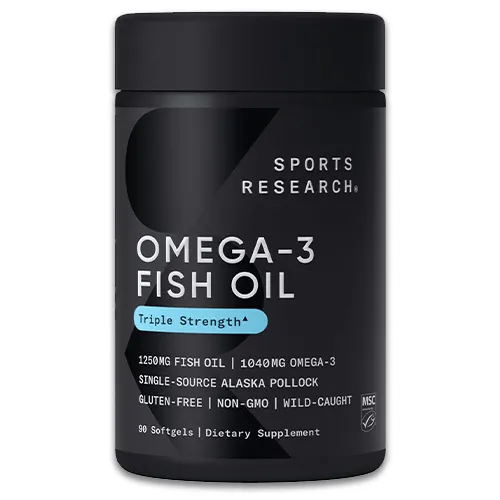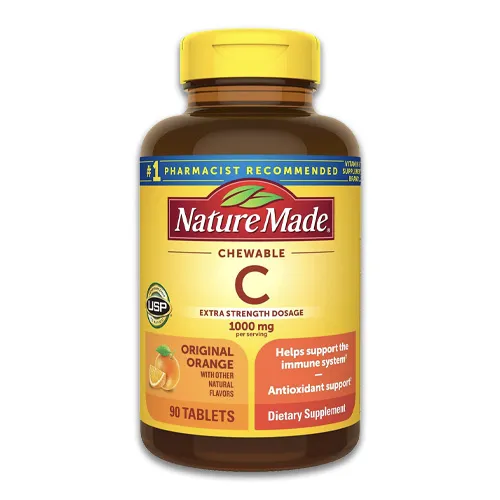
In today’s fast-paced world, maintaining good health is crucial. Supplements and vitamins can play a significant role in filling the nutritional gaps in your diet. Here’s a guide to the top 5 supplements and vitamins that can help you achieve a healthier lifestyle.
Vitamin D3 is essential for bone health. It helps your body absorb calcium, promoting strong bones and teeth. It also supports your immune system, brain, and nervous system.
You can get Vitamin D3 from sunlight, fatty fish, fortified dairy products, and supplements. Most people need additional Vitamin D3, especially during winter months.
The recommended daily intake for adults is 600-800 IU. However, your doctor can suggest the right
amount based on your needs.

Softgel, Dietary Supplement for Bone, Teeth, Muscle and Immune Health Support, 300 Count
D3 vitamin is the body’s preferred form of Vitamin D to help maintain Vit D3 levels.
Omega-3 fatty acids support heart health. They reduce inflammation, lower blood pressure, and improve cholesterol levels.
You can find Omega-3s in fish oil supplements, flaxseeds, chia seeds, and walnuts.
The typical dose is 250-500 mg of combined EPA and DHA per day. Always consult your healthcare provider before starting any supplement.

Burpless Fish Oil Supplement w/EPA & DHA Fatty Acids from Single-Source Wild Alaska Pollock – 1250 mg, 90 ct
Just one of our bovine-free, fish gelatin-based Omega-3 Fish Oil softgels contains at least 1040 mg of essential fatty acids in the preferred triglyceride (TG as rTG) form.
Vitamin C is a powerful antioxidant. It boosts your immune system, helps your body absorb iron, and supports skin health.
Citrus fruits, strawberries, bell peppers, and broccoli are excellent sources of Vitamin C.
The recommended daily intake for adults is 65-90 mg, but some may benefit from higher doses, especially during cold seasons.

Dietary Supplement for Immune Support, 90 Tablets, 45 Day Supply
Vitamin C is an antioxidant that supports the immune system and helps neutralize free radicals in the body.
Calcium is vital for strong bones and teeth. It also plays a role in muscle function and nerve signaling.
Dairy products, leafy greens, and fortified foods are good sources. Supplements are also available if dietary intake is insufficient.
Adults generally need 1,000-1,200 mg per day. Check with your healthcare provider to determine the right amount for you.
Probiotics are live bacteria that promote a healthy gut. They aid in digestion and boost your immune system.
You can find probiotics in yogurt, kefir, sauerkraut, and supplements.
A daily dose of 1-10 billion CFUs is typical. The right amount varies depending on the specific strain and your health needs.
Incorporating these supplements and vitamins into your daily routine can help you maintain optimal health. Remember, it’s always best to get nutrients from a balanced diet. Supplements should complement, not replace, healthy eating. Consult your healthcare provider before starting any new supplement to ensure it’s right for you.
Disclaimer:
The information provided on this blog is for general informational purposes only and is not intended as medical advice. Always consult with a healthcare professional before starting any new fitness program, dietary plan, or supplement regimen. The products and tips mentioned on this blog are based on personal experiences and research, and results may vary for each individual. The author and publisher of this blog are not responsible for any adverse effects or consequences resulting from the use of any suggestions, products, or procedures discussed in this blog. Use of the information and recommendations is at your own risk.